The Five Hate Languages
When I was helping couples get prepped for marriage counseling (one of many odd jobs that I’ve held over the years), they were always assigned some requisite reading material. One of those books, The Five Love Languages by Gary Chapman, has since then exploded and is now often used by corporate and public servant training programs to help others understand how the can better express and experience love. In other words, it isn’t just about romance, it’s about building meaningful connection in a way that resonates with others.
Chapman suggested that not everyone communicates the same way. Sometimes, we don’t even realize that we’re speaking different languages. I’ve been thinking that if there are five primary love languages (words of affirmation, quality time, receiving gifts, acts of service, and physical touch) to build connection, then certainly there must be opposite forms of this to express or to feel hate and dissonance. And that also means that we may even be expressing in ourselves in a way that harms others without realizing as well.
Here are the “five hate languages” and how they can show up in a personal as well as communal level:
Words of Discouragement: If words can build us up, they can also tear us down. Some are more sensitive to written and verbal communication than others. You don’t have to be malicious - this could be the excessive use of sarcasm and cynicism, inflammatory/divisive language, and most importantly, the unwillingness to be hold responsibility for your words. Remember, communication isn’t only about intention. It’s also the impact of your words.
How to address this: Avoid using unclear, sarcastic language when possible. If you hurt someone (even if unintentionally), apologize and thank others for holding you to account. Make every word count.Alienation: The love language of quality time is really about togetherness. The opposite of this would be alienation and separation. This can look like ignoring the experience of others, listening only to argue (instead of listening to understand), complaining about time together, or not creating dedicated time to spend with others. When people say “our country is so divided” (be it rural vs. metro, along racial lines, or political views), it’s often because individuals often lack relationships of significance with those on opposite sides - but even if they do have a connection, they don’t dedicate their time and undivided attention to those people.
How to address this: Create purpose, intentional time for others. Avoid distractions or introducing negativity by assuming their intentions. Ask others what they need.Lack of Recognition: The language of gift giving is often misinterpreted as materialism but it isn’t about the objects, it’s really about tokens of sentimentality to remind others that they’re cared for. In its opposite form, this expression would be refusing to thoughtfully acknowledge others through tokens or by holding onto objects that could be harmful. For example, some people despise the confederate flag and statues that commemorate slaveholders because of what they glorify - when places hold these symbols, those people feel unwelcome as it can reinforce trauma. In addition, this could be the (intentional and unintentional) lack of recognition for others by withholding the ability to have objects that honor them.
How to address this: Give people the dignity of recognition through objects, be it a thoughtful gift that lets them know they are thought of/appreciated, or a symbol that honors them on their terms.Unjustness: If the love language of acts of service is about nonverbal cues to show affection (i.e, household chores or thoughtful gestures), the opposite would be actions that show thoughtlessness or the withholding of services altogether. Essentially, it can mean the lack of assistance for others and perpetuating their struggle. Lack of charity not only harms the victims, but others as well. As Martin Luther King, Kr. said, ““Injustice anywhere is a threat to justice everywhere. We are caught in an inescapable network of mutuality, tied in a single garment of destiny. Whatever affects one directly, affects all indirectly.”
How to address this: Don’t ignore the plight of others. Demonstrate service by taking actions to benefit others, even if those actions might seem invisible.Violence: If intimate and non-intimate touches can express love, when abused, they can also express harm. It isn’t just physical violence and abuse, this can also be the withholding of affection (or isolation). And “violence” also includes all unwanted touching. If the only physical interaction that some people have with a group is pushing, the rough laying on of hands, or violence, what message are they receiving? If people see no accountability for those actions, what kinds of conclusions are they to draw?
How to address this: We must not only avoid harm, but we also must positively and respectively use physical actions to recognize others (with trust and permission, of course). As a society, it means thinking about the physical response of those in power: how can the policy or military use this responsibly?
Remember, language is the imperfect representation of our intentions but it also relies on interpretation. Some words and gestures have more impact than others, depending on the recipient. Even if you are unintentionally insulting someone by using verbiage that translates differently in another culture, you’re still creating harm - but some thoughtfulness can mitigate that. In the same way, our society is continuously communicating messages to others, often in ways that can hurt others, especially those who lack power, but we can address those be thinking more proactively on how we might be using languages of hate.
